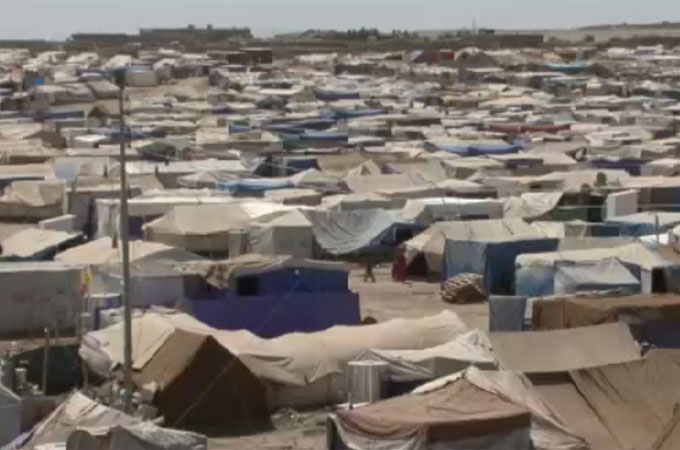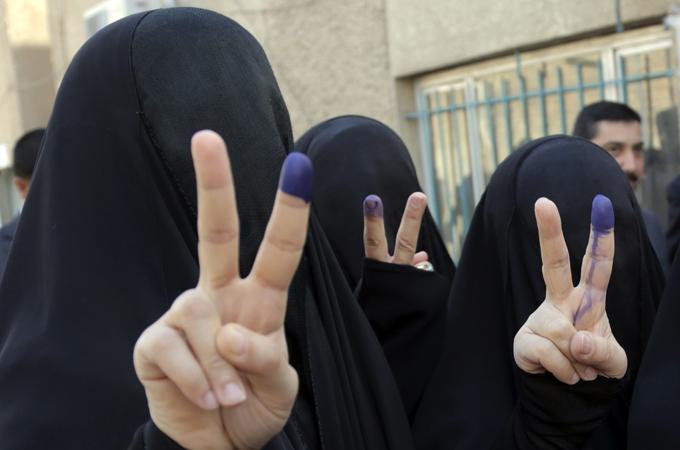No Iraq elections for two years
The long-awaited Iraqi national conference to decide the country’s future has been postponed to ‘some time’ in June.
 |
| Shiite politicians complain that they have been excluded from the political process |
The special envoy of British Prime Minister Tony Blair said Tuesday that occupation forces did not intend to hand power to an Iraqi government until general elections have been held, which he expected to take between one and two years.
John Sawers said in an interview he hoped that the interim administration could be formed as soon as possible but noted that discretion must be exercised in the choice of politicians representing the Iraqi people.
“We can’t simply give power to … self-appointed individuals and we’re not going to do that.
“They as politicians obviously want to build on their leadership roles and attract support in the country but it will only be possible to hand over power to an Iraqi government when it has been genuinely elected by the Iraqi people.”
The latest draft of the UN Security Council resolution by London and Washington late Monday sought endorsement of their occupation “until an internationally recognized, representative government is established by the people of Iraq and assumes (its) responsibilities.”
Whereas previous drafts spoke of a 12-month period to be renewed as necessary, the latest draft makes the occupation of Iraq open-ended.
“My instinct is that it will take more than year and less than two years,” to hold elections, Sawers said.
One of the problems hampering efforts to organise elections is the lack of an electoral register, US officials say.
National conference
The national political congress will likely be held next month, the US administration announced on Monday, saying that it would not be creating the new government hoped for by many Iraqis.
 |
| Rebuilding civil society will not happen overnight |
Officials from the Office of Reconstruction and Humanitarian Assistance (ORHA) said that the group of seven political leaders who have been meeting with US officials would have to be expanded even before there could be talk of setting up the authority.
They have come in for criticism from both the US and British governments and Shiite groups in Iraq who say that they are not sufficiently represented in discussions on the shape of post-war Iraq.
According to Sawers, the coalition believes that the seven have yet to demonstrate either their popular support or their ability to run a country plagued by lawlessness and a shortage of basic services.
Sawers said the group of seven are tasked with holding meetings in each of Iraq’s 18 provinces to come up with candidates for the national conference, which is expected to give fair representation to women and all of the nation’s ethnic, tribal and religious groups.
“We want to have the interim authority in place as soon as possible,” an ORHA official told reporters in Baghdad. “But there’s a need for that authority to be representative.”
The official said the national conference, which was agreed at a US-led meeting last month and had been set for the end of May, would now be held “sometime in June – but it all depends on whether that representativity is broadened or not.”
Several of the political groups on the committee have criticised the United States in recent days, accusing US officials of backtracking on what they said were earlier pledges to get a full government formed within wto put too much control into the hands of the committee.
Reservations
The official said that at a meeting Friday night with the new US overseer in Iraq, Paul Bremer and Sawers that the coalition had clearly explained its limits.
“We understand that they want to have as much power as possible but we told them: ‘You won’t be directly elected, you won’t have any direct experience of government.
“‘Of course you will have input into the government but, since you are not directly elected, it would be a nonsense for you to have direct executive power.’
“The last thing we want is to leave a bunch of self-appointed oligarchs in power,” the ORHA source said.
The main role of an interim authority chosen by the conference would be to adopt legal and constitutional reforms needed to hold elections for a genuinely democratic Iraqi government, the source said.
Many Iraqis have grown deeply distrustful over the US role in post-war Iraq, a sentiment that has been deepened by the widespread crime and chaos that has gripped Iraqi cities since Saddam Hussein’s fall on 9 April.